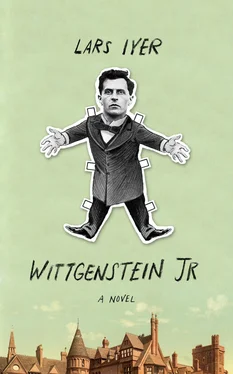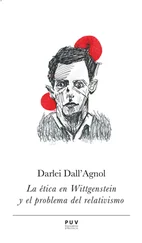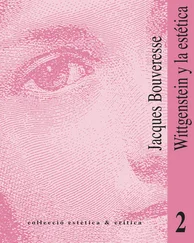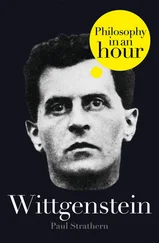Wittgenstein, meanwhile, looks out of the window. And we, too, look out of the window.
Afterwards, Ede’s rooms.
EDE: That was unbearable. Warrington-Smythe was awful!
DOYLE: Crookshank was just as bad. Actually, Crookshank was worse !
MULBERRY: Did you hear bloody Knowles? He does go on.
DOYLE: Who do you think won, Oxford or Cambridge?
MULBERRY: They were both bloody awful.
But what of Wittgenstein’s silence? we wonder. Was it a form of instruction ? Ought we somehow to learn from it?
Perhaps Wittgenstein’s just sad , I speculate. Perhaps he’s simply lost in despair.
Doyle remembers Wittgenstein’s face as cracked in woe. But Mulberry says Wittgenstein’s face was expressionless. It betrayed nothing.
His silence was like a black hole, we agree. A void in the conference. As though he sucked the occasion into himself, making it nothing. We were uneasy. What did Wittgenstein want of us, in the aftermath of Oxbridge philosophy?
We fantasise that Wittgenstein had wiped the floor with Crookshank and his Oxford contingent. That he had raised his hand at the end of Crookshank’s paper. With respect … , he had begun, obviously meaning the complete opposite. I would like to make a few modest remarks … , he had continued, all but pulling on a knuckleduster.
That Wittgenstein had blinded everyone! Left them dazzled. That Oxford had been ashamed, that Cambridge had been ashamed. That Oxbridge had been shown to itself in all its corruption. That Oxbridge philosophy had learnt its lesson.
That all had known a giant sat amongst them. That the very presence of Wittgenstein had been a living reproach. That Wittgenstein had humbled Oxford, and brought Cambridge to its knees.
That it hadn’t been about point scoring — about petty academic politics. That it had been about the essential nobility of thought … the pure spirit of inquiry … of philosophy! About Wittgenstein’s essential incorruptibility …
That the whole of Oxbridge had marvelled. That all there had wondered at us, Wittgenstein’s pupils. That we had shone with some of Wittgenstein’s majesty.
But Wittgenstein has told us many times that philosophy has nothing at all to do with discussion ; that philosophy eschews debate; that one should do philosophy, and not talk philosophy.
Wittgenstein headed up his stairwell, alone and quite silent, only nodding at us to take his leave. We heard the sound of his brogues on the flagstones. He seemed weary. His steps slowed. Had he reached the top of the staircase? Was he unlocking the door of his rooms?
What might he have done? we wonder. Might he have stood, at some point, and said some splendid, gnomic thing, something no one had understood, not even us? Some splendid, gnomic thing that had stunned everyone, that had given them pause, that had halted the whole charade , if only for a moment. Some splendid thing, impenetrable, gnomic, at once absolutely relevant and absolutely baffling.
Might he have left, pulling on his mackintosh? And might we have followed, Wittgenstein’s men, glamour and mystery trailing after us, myth and legend already beginning to accrete around us?
Might the legend of Wittgenstein have really begun? The legend of Wittgenstein and his men. Of a new thought-prince, and a new thought-school. Of a new step in philosophy, a strange step, a knight’s move, to leap over the heads of current thinkers. A new zigzag, a bolt of thought striking down, leaving nothing intact. Might Wittgenstein have left the ancient hall, mackintosh billowing? Might we have left with him, mackintoshes billowing?
We’d hoped for more, we admit. Not just from Wittgenstein, but from everyone. We’d hoped for better things of academic debate.
We’d imagined battles of logic, played out on parallel whiteboards, formulae flying from logician’s fingers.
We’d imagined the to-and-fro of medieval disputations. Like chess games. Like speed chess, the moves coming faster and faster. Until the loser gasped for air, exhausted, and the winner sat back in triumph.
We’d imagined rival casuists, rival applied ethicists, at war over the interpretation of particular cases. (The plank of Carneades. Foot’s trolley problem . Parfitt’s mere addition paradox.)
We’d imagined philosopher-exegetes, competing to give the best gloss of Gödel’s Formally Undecidable Propositions . Of Tarski’s Concept of Truth . Of Łukasiewicz’s Elements of Mathematical Logic .
We’d dreamt of old thinkers, charging around the philosophical landscape like tyrannosaurs, before being brought down by the fiendish cunning of a pack of young velociraptors. We’d dreamt of old thought-warriors crashing to the ground, the referee counting slowly to ten.
We’d imagined tag teams of Cambridge thinkers: the metaphysician teamed with the philosopher of mind; the logician teamed with the Kant-specialist …
We’d imagined thought-wars: quietists against stridentists, cognitivists against non-cognitivists, moral particularists against moral absolutists, physicalists against dualists …
We’d imagined secret thought-battles, for philosophers only, clandestine after-conferences like the after-show catwalk battles in Zoolander …
Yes, we had hoped for more, we agree.
He knows what philosophy is, Wittgenstein says. He has seen the face of philosophy. He has seen the face of logic.
The look of torment on his brother’s face. The look of calamity on his brother’s face. The look of despair on his brother’s face. He has seen these things.
The look of relief on his brother’s face, when they cut down his body. The look of peace on his brother’s face, when they closed his eyes. Of achieved peace, as at the end of a late Beethoven quartet. Yes, he has seen these things, he says.
Philosophy invaded his brother, Wittgenstein says. It saw a chink, a weakness, and flooded in.
There never was any such thing as logic , his brother wrote in his first notebook. The whole of the history of logic is only an episode in the history of the impossibility of logic .
There never was any such thing as philosophy , his brother wrote in his second notebook. The history of philosophy is only a chapter in the greater history of madness .
Logic is mad , his brother wrote in his third and final notebook. All reason is mad. Thought has gone mad, lost in its corridors. Thought has sent itself mad, thinking about itself in its labyrinth .
His brother wrote of thoughts of infinite recursion, of mirrored mirrors. He wrote of thoughts of the abyss that are themselves an abyss. He wrote of thoughts of darkness that are themselves dark. He wrote of thoughts of the end that never reach the end.
There is another, thinking inside me , his brother wrote in his final notebook. There is another, unthinking my thoughts. Unliving my life. Another, dying my life and living my death …
Philosophy: the name for the disaster of thought , his brother wrote in his final notebook. Philosopher: the name for the other, who thinks inside me .
Then it came to him, Wittgenstein says: his task, the task he would take on for his brother’s sake, and in his brother’s memory. He would construct a kind of logical mausoleum for his brother. What is his Logik but a logical tomb for his brother? And the logical resurrection of his brother?
He means to enter the region in which his brother lost his mind, and to come back out, Wittgenstein says.
Читать дальше












